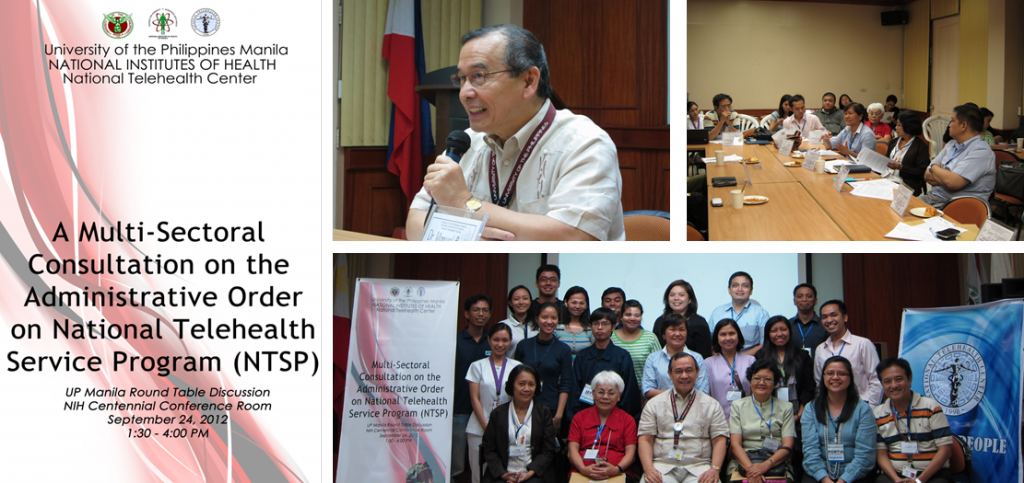PH Telehealth Project Seeks IP Coverage
October 30, 2012 1:36 pm | by Aliyah Lou Evangelista | Posted in News
Manila, Philippines – The National Telehealth Center (NTHC) involves the National Comission for Indigenous Peoples (NCIP) in its efforts to generate multi-sector support as the Department of Health (DOH) push for an Adminsitrative Order on the National Telehealth Service Program (NTSP). The NTSP AO will strengthen DOH’ health policy direction on using ICTs for Kalusugan Pangkalahatan (Universal Health Coverage).
The proposed AO will also institutionalize the NTSP that aims to “improve access of rural communities and Geographically Isolated and Disadvantaged Areas to specialized medical care through telemedicine and R4Health” and will help DOH provide real time field data through electronic mobile reporting system to policy makers. Once the AO is passed, more reliable health data will be available for planning and implementation of health services, budgeting and procurement of supplies for DOH health programs.
“Sana di maging katulad ng ibang programa para samin, maganda ang panimula, pero sa implementation, kakaiba at di natututloy. Sana sa policy level palang, look at us (Indigenous Peoples) not as subjects of study or objects of development,” said Zenaida Brigida Pawid, NCIP Chairperson in a multi-sectoral consultation on the NTSP AO held this October at the University of the Philippines (UP) Manila. The said consultation mapped issues, culture, and health concerns of IPs and other sectors in Telemedicine.

Clockwise: UP Manila Chancellor Manuel Agulto, panelists from National Institutes of Health-UP Manila, NCIP, DOH, and DSWD, participants of the round table discussion on the National Telehealth Service Program.
The meeting was in coordination with the DOH-Bureau of Local Health and Development and DOH- Health Policy and Planning Bureau and was attended by the Department of Social Welfare and Services (DSWD), the National Institutes of Health (NIH), and telehealth domain experts in the Philippine General Hospital.
“There are a lot of values and attitude system that can be learned from the IPs,” elaborated Pawid after Dr. Gene Nisperos of NTHC presented the proposed AO guiding principles.
“We have no stats – for birth, marriage, and death,” added Pawid. “What we can offer you, together with the 7 ethnographical regional director, is to provide you information that can help you gather and build database from ground level.” Pawid raised that most neglected IP groups, such Dumagats, Aetas, Agtas, Mamanoas, Palawanos, and Mangyans, have no basic social services and therefore should be a major consideration in creating health data bases.
“NTHC should be sensitive on this in delivering telemedicine services. We have a lot to learn,” added Dr. Portia Marcelo, NTHC Director.
Once instituted, DOH-Bureau of Local Health Development is proposed to secure funding for NTSP in the next years of implementation. Philippine Health Insurance Corporation is rallied to develop financing schemes for Telehealth services or transactions.
NTHC consolidates outputs from this and will draft recommendations for the AO.
December of last year, NTHC convened a round table discussions on the ethical basis and legal framework of Telemedicine. Various government agencies, research unit, and hospitals participated in the event. Amongst notable efforts in instituting the NTSP is filling of House Bill 6336 which will push for a “Telehealth Act of 2012.